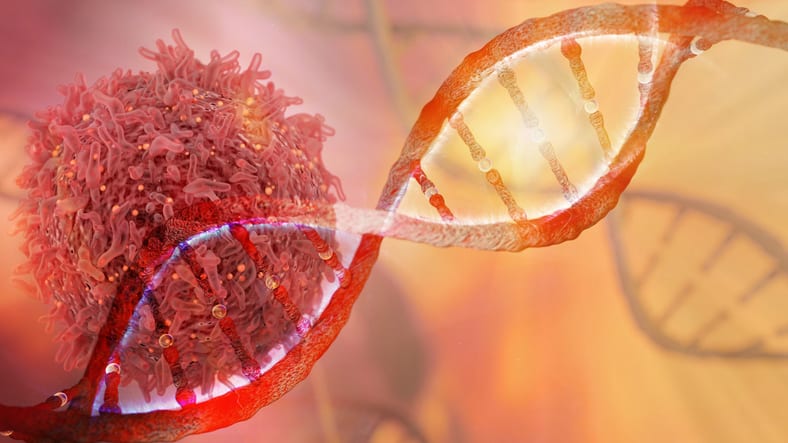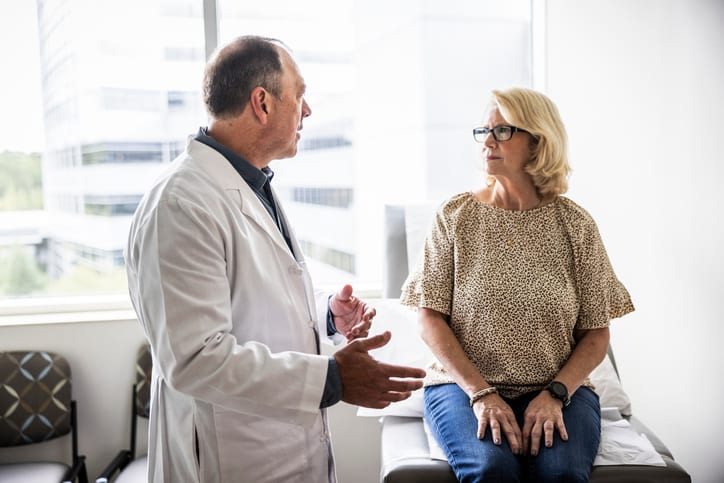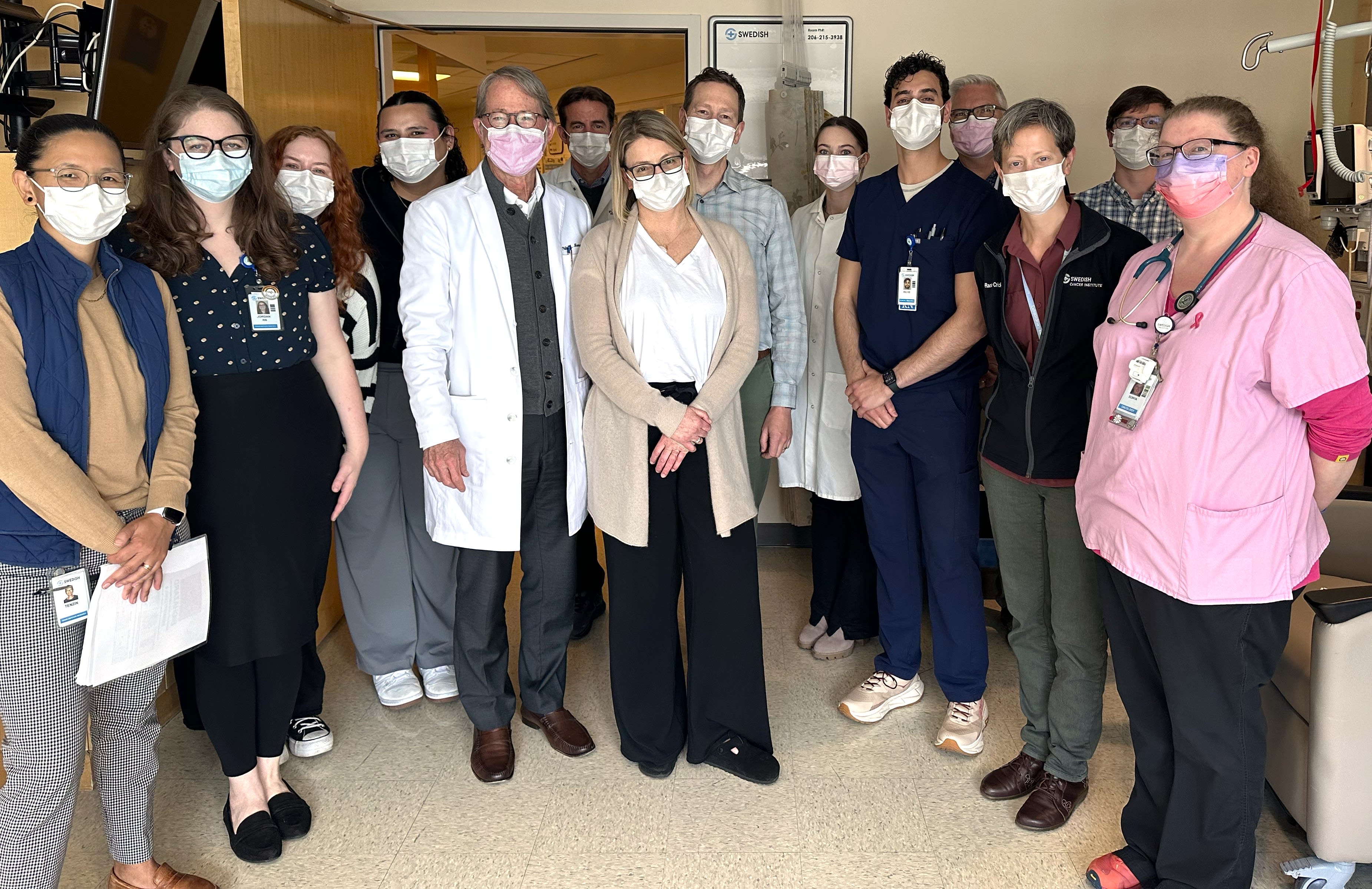Adaptive Radiotherapy
Adjusts in Real Time to Target Tumors More Precisely
At the Providence Swedish Cancer Institute, our radiation oncologists identify the most effective therapies for your unique cancer. That's why we offer adaptive radiotherapy, an advanced approach that adjusts your radiation plan during treatment to precisely target your tumor, protect healthy tissue, and reduce side effects.

Treatment Overview
Adaptive radiotherapy is an innovative approach that incorporates imaging during treatment and adjusts your treatment plan in real time to deliver radiation with greater precision. Adjusting the delivery of radiation dynamically during a treatment session accounts for shifts in the tumor's size, shape, position, and response during treatment; as well as natural changes in nearby organs from things like eating, drinking, or weight gain/loss. This personalized method ensures your treatment evolves with you, helping to reduce side effects and improve outcomes.
What to Expect
You may have questions before your cancer treatment, and that's completely normal. We're here to ease your worries by guiding you through each step of adaptive radiotherapy. Your radiation oncologist will review with you the personalized treatment plan developed in collaboration with your care team that included your surgeon and medical oncologist. Here's what to expect before, during, and after your treatment.
Your first step prior to treatment is a planning session, where your care team takes detailed imaging scans to map the treatment area. We explain the process, answer your questions, and provide tips to help you feel comfortable and ready to get started.
During each session, you lie comfortably on the treatment couch as your care team performs imaging scans to adjust your treatment, so that the radiation targets the tumor while protecting healthy tissue. After treatment, most patients can resume normal activities. You may experience mild fatigue or skin irritation, but your care team monitors your progress.
Adaptive radiotherapy delivers precise treatment tailored to changes in your body, which can help reduce side effects and improve outcomes. In some cases, it can potentially require fewer sessions compared to traditional radiation therapy.
While it offers important advantages for certain cancers, adaptive radiotherapy isn’t beneficial for every patient. It is a more complex, specialized approach, and sessions can be longer than traditional radiation sessions. Your care team will talk with you about the risks and benefits to determine if this treatment is right for you.
We offer holistic care options during and after treatment to support your physical and emotional well-being. Our cancer rehabilitation program is one of only a few cancer rehabilitation programs offered nationally, and it's led by a fellowship-trained cancer rehabilitation specialist. Cancer rehabilitation can include physical and occupational therapy; nutrition management; speech therapy; and lymphedema therapy to address fluid buildup, a side effect of radiation or surgical procedures.
Frequently Asked Questions
Unlike standard radiotherapy, adaptive radiotherapy uses imaging during each session to adjust your treatment based on how your body and tumor change over time and after each treatment session. This is personalization in real-time, an approach that helps improve accuracy and reduce side effects by protecting healthy tissue while targeting cancer cells.
Because your care team customizes each session, treatments may take a little longer than standard radiation, but in some cases, higher doses can be delivered safely, which may reduce the total number of treatment sessions needed.
Each adaptive radiotherapy session typically lasts about 30 to 60 minutes. The imaging and adjustments made before treatment take extra time to ensure your care is tailored precisely to changes in your tumor and body. While each session may be longer than standard radiation therapy, this personalized approach may allow for higher doses per session - meaning fewer total treatments could be needed.
No, you shouldn’t feel the radiation during treatment. You lie comfortably on the treatment couch as the machine delivers precise radiation to the targeted area — without you feeling a thing. Your care team also ensures you’re comfortable throughout the session, so always speak up if something feels wrong or painful.
Side effects vary but may include mild fatigue or skin irritation. Most patients find them manageable and can return to normal activities after each session. Your care team helps you manage any side effects to keep you feeling your best.
The number of sessions you need depends on your specific care plan. Most adaptive radiotherapy courses involve multiple sessions over a few weeks to ensure the best results, but your doctor discusses your treatment plan with you well in advance, so you know what to expect.
In most cases, you can continue with your regular activities — including going to work — during adaptive radiotherapy, as the treatment is designed to minimize side effects. Some people may feel tired or experience mild discomfort, so if that’s the case for you, it’s important to listen to your body and adjust your schedule as needed to support your recovery.
Cancer often requires a combination of approaches to achieve the best outcome, so it’s likely your care plan could include more than one type of treatment.
Surgery alone might be enough for early-stage cancer that hasn’t spread, but additional treatments like chemotherapy, radiation therapy, hormone therapy, or biological therapy may be needed to target cancer cells throughout the body, reduce the risk of recurrence, or improve overall effectiveness.
Our cancer experts tailor treatment to your specific diagnosis, working to achieve the highest likelihood of success.
We provide a full range of supportive care services to support you during and after your cancer treatment. Some of these services include:
- Art therapists
- Cancer rehabilitation (onco-physiatry)
- Care coordinators
- Genetic counseling (cancer geneticist)
- Health educators
- Medical massage (edema, lymphedema management)
- Music therapist
- Naturopaths
- Nutritionists
- Oncology nurses
- Social workers
- Speech and language pathology
We can also help with finances, food, transportation, and other challenges for eligible patients through our patient assistance fund.
See the full list of supportive care services.
Note: Some services are provided by local partners and vary based on location. Please contact your clinic for more information.
News & Info From Our Experts



